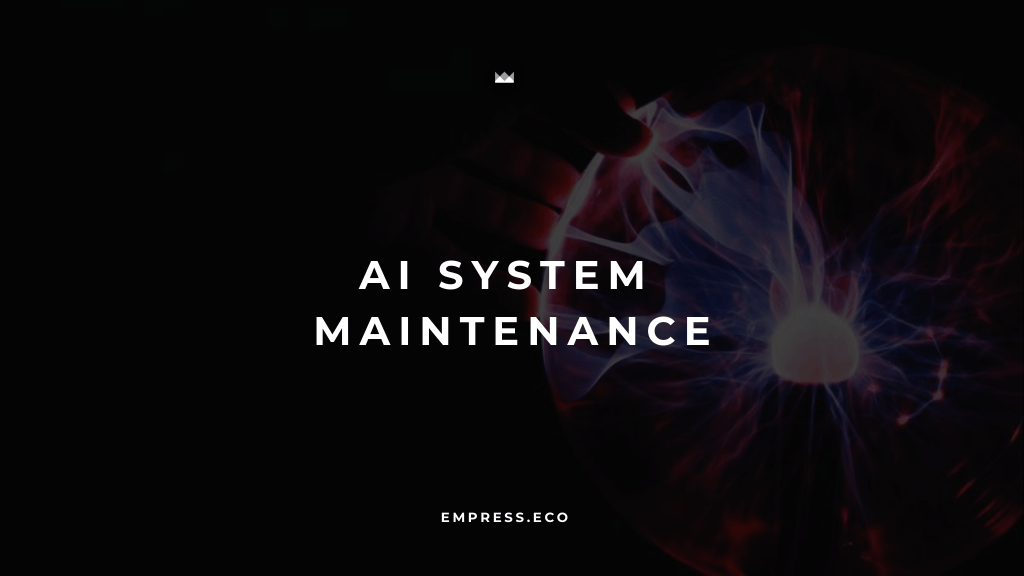Delivering exceptional customer service is more important than ever. Customers expect quick, accurate, and personalized interactions, and businesses that can meet these expectations stand to gain not only loyalty but also a significant competitive advantage. This is where AI-enhanced customer service comes into play. By integrating artificial intelligence into customer support operations, companies can elevate the customer experience to new heights, providing personalized, efficient, and around-the-clock service.
In this in-depth exploration, we'll delve into the transformative power of AI-enhanced customer service, the strategies to effectively implement it, and how businesses can overcome the challenges to harness its full potential.
The Strategic Importance of AI-Enhanced Customer Service
AI-enhanced customer service isn't just a trend; it's a strategic necessity for businesses looking to thrive in an environment where customer expectations are continually rising. At its core, AI-enhanced customer service leverages advanced technologies like machine learning, natural language processing (NLP), and data analytics to deliver a more personalized and responsive customer experience.
Key Benefits of AI-Enhanced Customer Service
1. Personalized Customer Interactions
One of the most significant advantages of AI in customer service is its ability to deliver highly personalized interactions. AI tools can analyze vast amounts of customer data, including purchase history, browsing behavior, and previous interactions, to provide tailored responses and recommendations. This level of personalization not only makes customers feel valued but also increases the likelihood of repeat business and customer loyalty.
For example, an AI-powered chatbot on an e-commerce website can greet returning customers by name, suggest products based on their past purchases, and even offer personalized discounts. This type of interaction creates a seamless and engaging customer experience that builds strong connections between the brand and the customer.
2. Improved Response Times
In an era where instant gratification is the norm, long wait times can severely impact customer satisfaction. AI-driven chatbots and virtual assistants can handle routine inquiries instantly, ensuring that customers receive the information they need without delay. These AI tools are available 24/7, providing immediate support regardless of time zones or business hours.
Consider a telecom company using an AI chatbot to handle common customer queries such as billing questions, service outages, or plan upgrades. By providing instant responses, the chatbot reduces wait times and frees up human agents to focus on more complex issues, enhancing overall efficiency and customer satisfaction.
3. 24/7 Availability
Unlike human agents, AI-driven customer service tools don’t require sleep, breaks, or vacations. They can operate continuously, ensuring that customer inquiries are addressed promptly at any time of day or night. This 24/7 availability is particularly valuable for businesses with a global customer base, where customers in different time zones may need support outside of traditional business hours.
For instance, an AI virtual assistant on a travel booking website can assist customers with booking changes, cancellations, or inquiries at any hour, providing the same level of service whether it's 2 PM or 2 AM. This round-the-clock availability enhances customer experience and can lead to higher satisfaction and retention rates.
4. Increased Efficiency and Cost Savings
By automating routine tasks and handling basic customer inquiries, AI-enhanced customer service significantly increases operational efficiency. This automation allows human agents to focus on more complex, high-value interactions, leading to better resource allocation and reduced operational costs.
For example, a bank implementing AI to manage common customer requests such as balance inquiries, fund transfers, or fraud alerts can streamline these processes, reduce the workload on human agents, and cut down on operational expenses. The result is a more efficient customer service operation that can handle higher volumes of inquiries without increasing staffing costs.
Implementing Effective AI-Enhanced Customer Service
To fully leverage the benefits of AI-enhanced customer service, businesses need to approach implementation strategically. This involves choosing the right tools, integrating them seamlessly with existing systems, and ensuring that both customers and employees benefit from the enhancements.
1. Deploy AI Chatbots and Virtual Assistants
AI-powered chatbots and virtual assistants are the frontline of AI-enhanced customer service. These tools are capable of handling a wide range of customer interactions, from answering FAQs to processing orders. They can also be programmed to escalate more complex issues to human agents, ensuring that customers receive the appropriate level of support.
When deploying chatbots, it’s essential to ensure they are equipped with advanced natural language processing (NLP) capabilities. NLP enables chatbots to understand and respond to customer inquiries in a natural, conversational manner, improving the overall user experience. Additionally, businesses should regularly update and train these AI models to ensure they continue to improve in accuracy and relevance over time.
2. Leverage Customer Data for Personalization
AI thrives on data. The more data it has, the better it can personalize customer interactions. Businesses should harness customer data—such as past interactions, purchase history, and browsing behavior—to deliver tailored responses and recommendations.
For instance, an AI system in a retail setting could analyze a customer's previous purchases and browsing history to recommend products that align with their interests. If a customer frequently purchases athletic wear, the system might suggest new arrivals in that category or offer a discount on related items. This level of personalization not only enhances the customer experience but also drives higher sales and conversion rates.
3. Integrate AI with Existing Systems
For AI-enhanced customer service to be effective, it must be integrated with existing customer relationship management (CRM) systems and support platforms. This integration ensures that AI tools have access to all relevant customer information and can provide a seamless experience across all touchpoints.
For example, an AI chatbot integrated with a CRM system can access a customer's full history, allowing it to provide personalized service based on past interactions. If a customer contacts the company about an issue they've previously reported, the chatbot can reference that information, providing continuity and context to the conversation.
4. Continuously Train and Improve AI Models
AI models are not static; they require continuous training and refinement to maintain their effectiveness. As customer preferences and behaviors evolve, so too must the AI systems that support them. Regular updates and retraining of AI models are crucial to ensure they remain relevant and capable of handling new types of inquiries.
Businesses should invest in ongoing AI training and improvement initiatives. This might involve feeding the AI system new data, updating algorithms, or retraining models based on customer feedback. By keeping AI tools up-to-date, businesses can ensure they continue to deliver high-quality customer service that meets changing demands.
5. Monitor and Evaluate Performance
To maximize the benefits of AI-enhanced customer service, businesses must regularly monitor and evaluate the performance of their AI tools. Key performance indicators (KPIs) such as customer satisfaction, response times, resolution rates, and cost savings should be tracked to assess the impact of AI on customer service operations.
For instance, if a company notices a decline in customer satisfaction scores after implementing an AI chatbot, it may need to re-evaluate the chatbot's responses or adjust its programming to better meet customer needs. By continuously monitoring performance and making data-driven improvements, businesses can ensure that their AI-enhanced customer service remains effective and aligned with their goals.
Challenges and Considerations
While AI-enhanced customer service offers numerous advantages, businesses must navigate several challenges to implement these tools successfully.
1. Maintaining a Human Touch
One of the most significant challenges in implementing AI-enhanced customer service is maintaining the human touch that is often crucial in customer interactions. While AI can handle many tasks, certain issues require empathy, understanding, and complex problem-solving that only a human agent can provide.
To address this challenge, businesses should ensure that AI tools are designed to complement, not replace, human agents. AI should handle routine inquiries, freeing human agents to focus on more complex or sensitive issues. Additionally, companies should make it easy for customers to transition from AI to a human agent when needed, ensuring that the human touch is always accessible.
2. Data Privacy and Security
AI systems rely heavily on data, which means that data privacy and security are paramount. Businesses must ensure that all customer data used by AI systems is protected against unauthorized access and breaches. Compliance with data privacy regulations, such as GDPR or CCPA, is essential to avoid legal repercussions and maintain customer trust.
For example, an AI chatbot that collects customer information during interactions must do so securely, with robust encryption and access controls in place. Businesses should also be transparent with customers about how their data is being used and provide options for opting out of data collection if desired.
3. Change Management
The introduction of AI into customer service operations represents a significant change for both employees and customers. Effective change management is crucial to ensure a smooth transition and successful adoption of AI tools.
Businesses should provide comprehensive training for employees on how to work alongside AI tools, emphasizing the benefits of automation and how it can enhance their roles rather than replace them. For customers, clear communication about the new AI-enhanced services and how they can be used is essential to minimize confusion and resistance.
Conclusion
AI-enhanced customer service is a powerful tool for businesses seeking to deliver personalized, efficient, and responsive customer interactions. By leveraging AI-driven tools, companies can improve response times, enhance customer satisfaction, and achieve significant cost savings. However, to fully realize the benefits of AI-enhanced customer service, businesses must navigate challenges such as maintaining the human touch, ensuring data privacy, and managing the change process effectively.
As customer expectations continue to evolve, AI-enhanced customer service will become increasingly essential for businesses looking to maintain a competitive edge and achieve long-term success. By implementing the strategies outlined in this guide, companies can harness the full potential of AI to transform their customer service operations and deliver exceptional experiences that drive customer loyalty and business growth.



